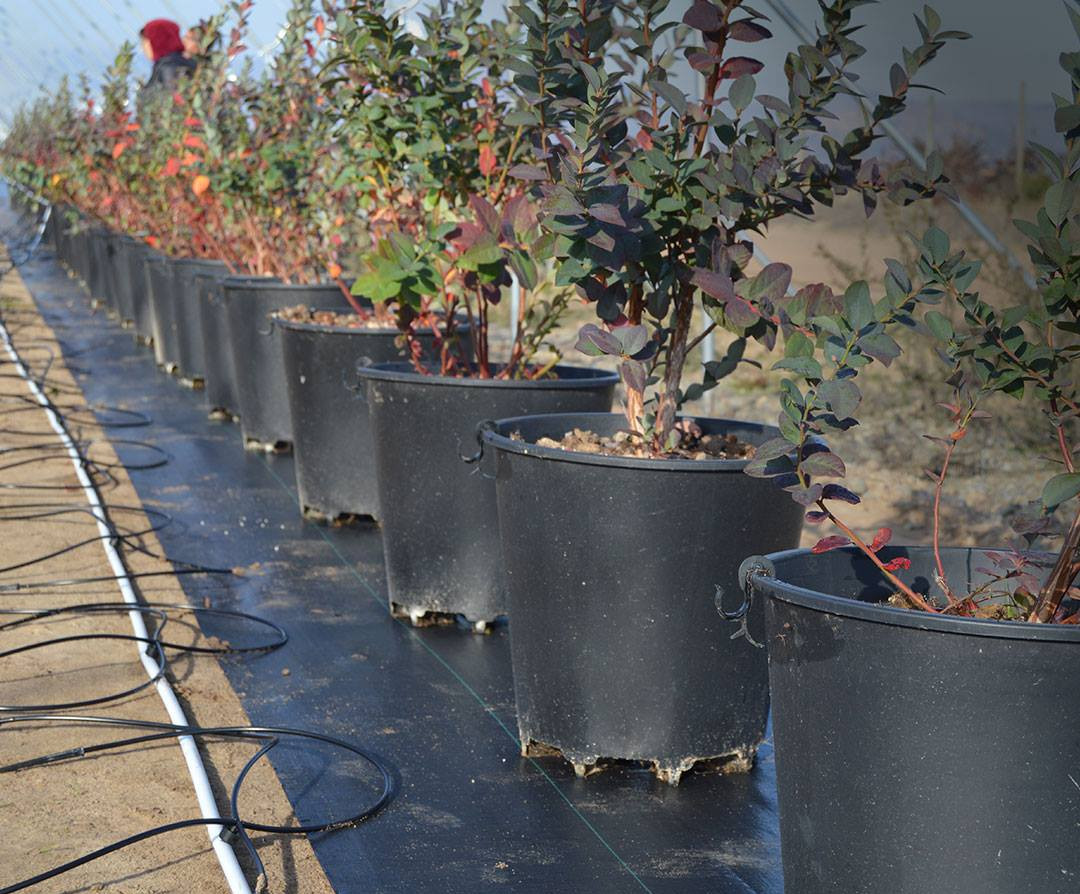
Blueberries are prized for their sweet flavor, vibrant color, and numerous health benefits, making them a popular choice for home gardeners. While blueberries thrive in acidic, well-drained soil in their natural habitat, cultivating them in containers presents unique challenges. Plastic planters offer a convenient solution for growing blueberries in limited spaces, but selecting the right soil is essential for ensuring the health and productivity of your plants. In this article, we will explore the characteristics of soil best suited for blueberry plastic planters and offer practical tips for optimizing growing conditions.
Understanding Blueberry Soil Requirements
Before delving into the specifics of soil selection, it's essential to understand the unique soil requirements of blueberries. As acid-loving plants, blueberries prefer soil with a low pH level ranging from 4.5 to 5.5. Soil pH influences nutrient availability, root development, and overall plant health. In addition to acidity, blueberries require well-drained soil to prevent waterlogging, which can lead to root rot and other moisture-related issues. Finally, blueberries benefit from soil rich in organic matter, which helps retain moisture and provides essential nutrients for healthy growth.
Choosing the Right Soil Mix for Blueberry Plastic Planters
When it comes to selecting soil for blueberry plastic planters, it's crucial to strike the right balance of acidity, drainage, and nutrient content. Here are some key considerations to keep in mind:
Acidic Soil pH:
To mimic the acidic conditions found in their native habitat, opt for a soil mix specifically formulated for acid-loving plants, such as azaleas, rhododendrons, and, of course, blueberries. These specialty soil mixes are typically blended with ingredients like peat moss, pine bark, and perlite to lower the pH and improve soil texture. Avoid using garden soil or standard potting mixes, as they may not provide the acidity blueberries require.Well-Drained Soil:
Good drainage is essential for preventing waterlogged soil, which can suffocate blueberry roots and lead to root rot. Choose a soil mix that promotes optimal drainage while retaining enough moisture to sustain plant growth. Look for soil mixes that contain perlite, vermiculite, or coarse sand to improve drainage and aeration.Organic Matter:
Incorporating organic matter into the soil mix is crucial for providing blueberries with essential nutrients and improving soil structure. Composted pine bark, coconut coir, and peat moss are excellent sources of organic matter that help retain moisture and promote healthy root development. Avoid using synthetic fertilizers or chemical additives, as they can disrupt the delicate balance of soil pH and harm beneficial soil microorganisms.
DIY Soil Mix Recipe for Blueberry Plastic Planters
For those who prefer to create their own soil mix for blueberry plastic planters, here's a simple recipe to follow:
50% Acidic Peat Moss: Provides acidity and moisture retention.
25% Composted Pine Bark: Improves soil structure and drainage.
25% Perlite or Coarse Sand: Enhances aeration and prevents waterlogging.
Mix the ingredients thoroughly to ensure uniform distribution of nutrients and pH levels. Fill your plastic planters with the soil mix, leaving enough space for the blueberry plants to establish their root systems.
Tips for Soil Management and Maintenance
Once you've filled your blueberry plastic planters with the appropriate soil mix, here are some tips for soil management and maintenance to ensure the continued health and productivity of your plants:
Monitor Soil Moisture: Check the moisture level of the soil regularly and water your blueberry plants as needed. Avoid overwatering, as excess moisture can lead to root rot.
Mulch the Soil Surface: Apply a layer of organic mulch, such as pine straw or wood chips, to the soil surface to help retain moisture, suppress weeds, and maintain a consistent soil temperature.
Fertilize Wisely: Blueberries have specific nutrient requirements, so use a fertilizer formulated for acid-loving plants and follow the recommended application rates. Avoid excessive fertilization, as it can disrupt soil pH and cause nutrient imbalances.
Prune and Thin Plants: Regular pruning and thinning of blueberry plants help improve air circulation, reduce disease incidence, and promote fruit production. Remove any dead or diseased branches and thin out overcrowded growth to encourage vigorous, productive plants.
Monitor Soil pH: Periodically test the pH of the soil using a soil pH meter or testing kit and adjust as needed with amendments such as elemental sulfur or acidic fertilizers.
Conclusion
In conclusion, selecting the right soil for blueberry plastic planters is essential for creating optimal growing conditions and ensuring the health and productivity of your plants. By choosing a soil mix that is acidic, well-drained, and rich in organic matter, you can provide blueberries with the ideal environment for root development, nutrient uptake, and fruit production. Whether you opt for a specialty soil mix or prefer to create your own, proper soil management and maintenance are key to successful blueberry cultivation in plastic planters. With the right soil and care, you can enjoy a bountiful harvest of delicious, homegrown blueberries year after year.
Naturehydro Blueberry Cultivation Container
info@naturehydro.com
https://www.naturehydro.com